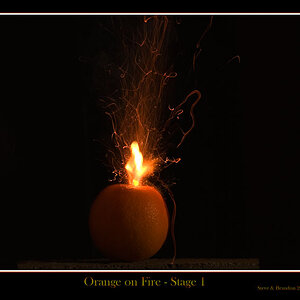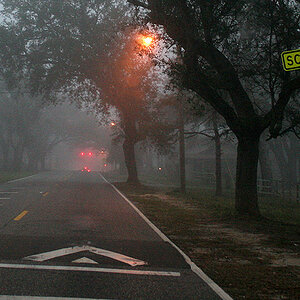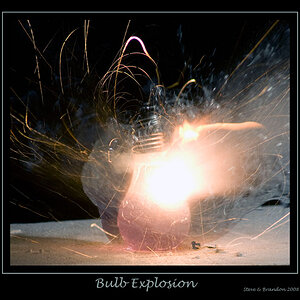OmlessWanderer
TPF Noob!
- Joined
- Mar 17, 2007
- Messages
- 81
- Reaction score
- 0
- Can others edit my Photos
- Photos OK to edit
I've been shopping for lenses to go along with the Nikon D200 I am planning to get and I haven't been able to discover the specific advantages to using a DX lens. I know they're 'designed specifically for digital cameras' but if you want to achieve comparable results between 35mm and APS-sensor digital you still need to multiply the focal length by the given sensor's multiplier, right?
i.e. an 18mm lens on a Nikon D200 is equivalent to what would be a 27mm lens on a film camera, even if that 18mm lens is a DX lens, correct?
If yes, then whats the point in having DX lenses? Why not just use standard 35mm lenses that will work fine if you decide to shoot film and might even produce better results on the digital since the majority of fall off associated with resolution and contrast near the edge of the frame(according to the MTF charts) would be off the sensor anyway. Wouldn't that effectively eliminate a whole slough of lens problems that tend to become more apparent near the edges of the frame?
Is there some caveat I'm not aware of? Can someone explain this to me please? Thanks!
i.e. an 18mm lens on a Nikon D200 is equivalent to what would be a 27mm lens on a film camera, even if that 18mm lens is a DX lens, correct?
If yes, then whats the point in having DX lenses? Why not just use standard 35mm lenses that will work fine if you decide to shoot film and might even produce better results on the digital since the majority of fall off associated with resolution and contrast near the edge of the frame(according to the MTF charts) would be off the sensor anyway. Wouldn't that effectively eliminate a whole slough of lens problems that tend to become more apparent near the edges of the frame?
Is there some caveat I'm not aware of? Can someone explain this to me please? Thanks!



![[No title]](/data/xfmg/thumbnail/41/41930-3f8741ecabbbfd4d67ade3e339078814.jpg?1619739946)

![[No title]](/data/xfmg/thumbnail/34/34118-1c18899050bfacc1ed25ac6c1740422b.jpg?1619736288)

![[No title]](/data/xfmg/thumbnail/41/41890-a5975e67f00dd9340fcf9dba8728a762.jpg?1619739933)
![[No title]](/data/xfmg/thumbnail/42/42359-17c2ddbbb8366896f948a571f6c09cac.jpg?1619740153)




![[No title]](/data/xfmg/thumbnail/34/34115-73b827c6a6db1413dcead11e4caaae69.jpg?1619736285)